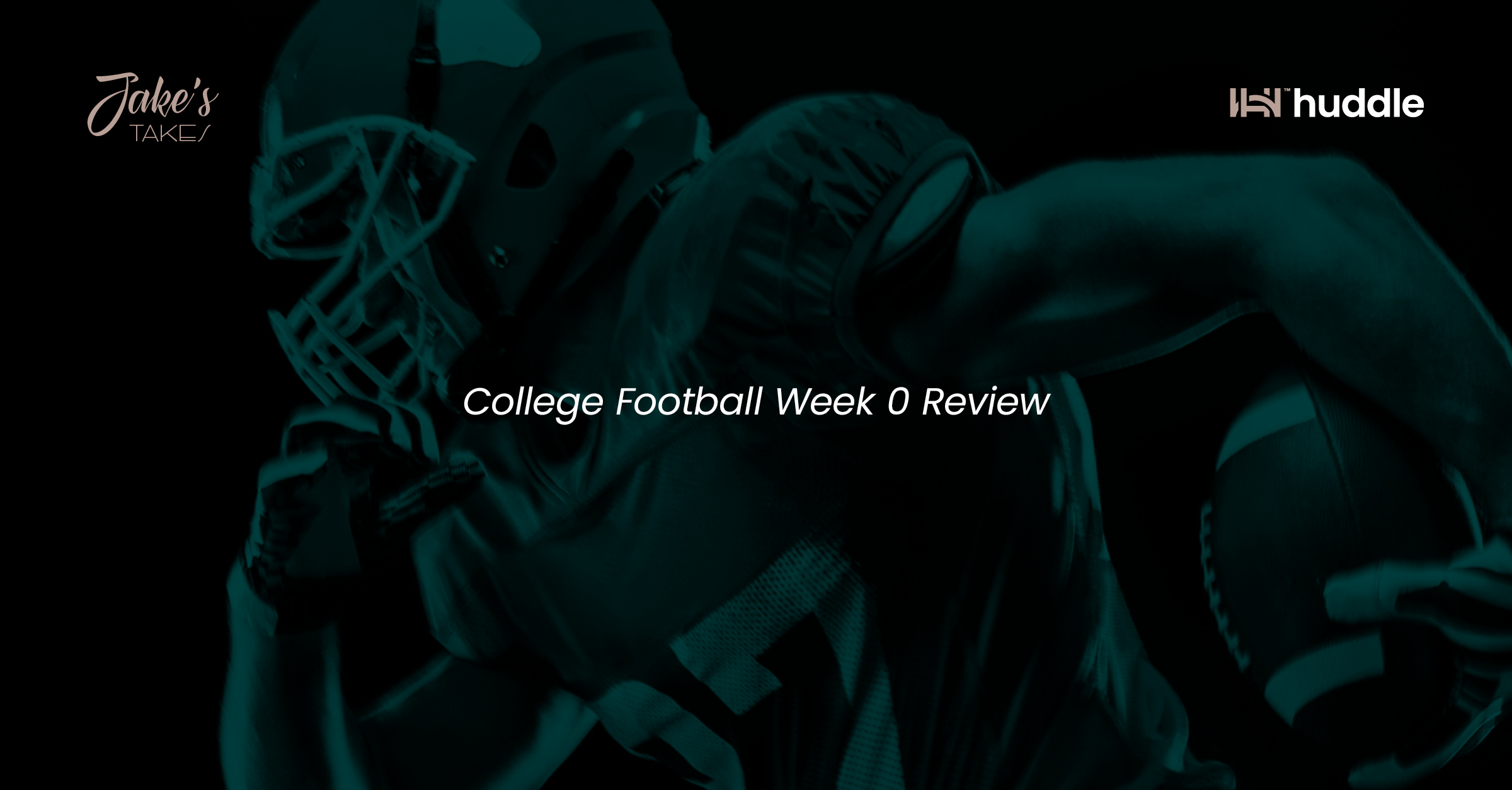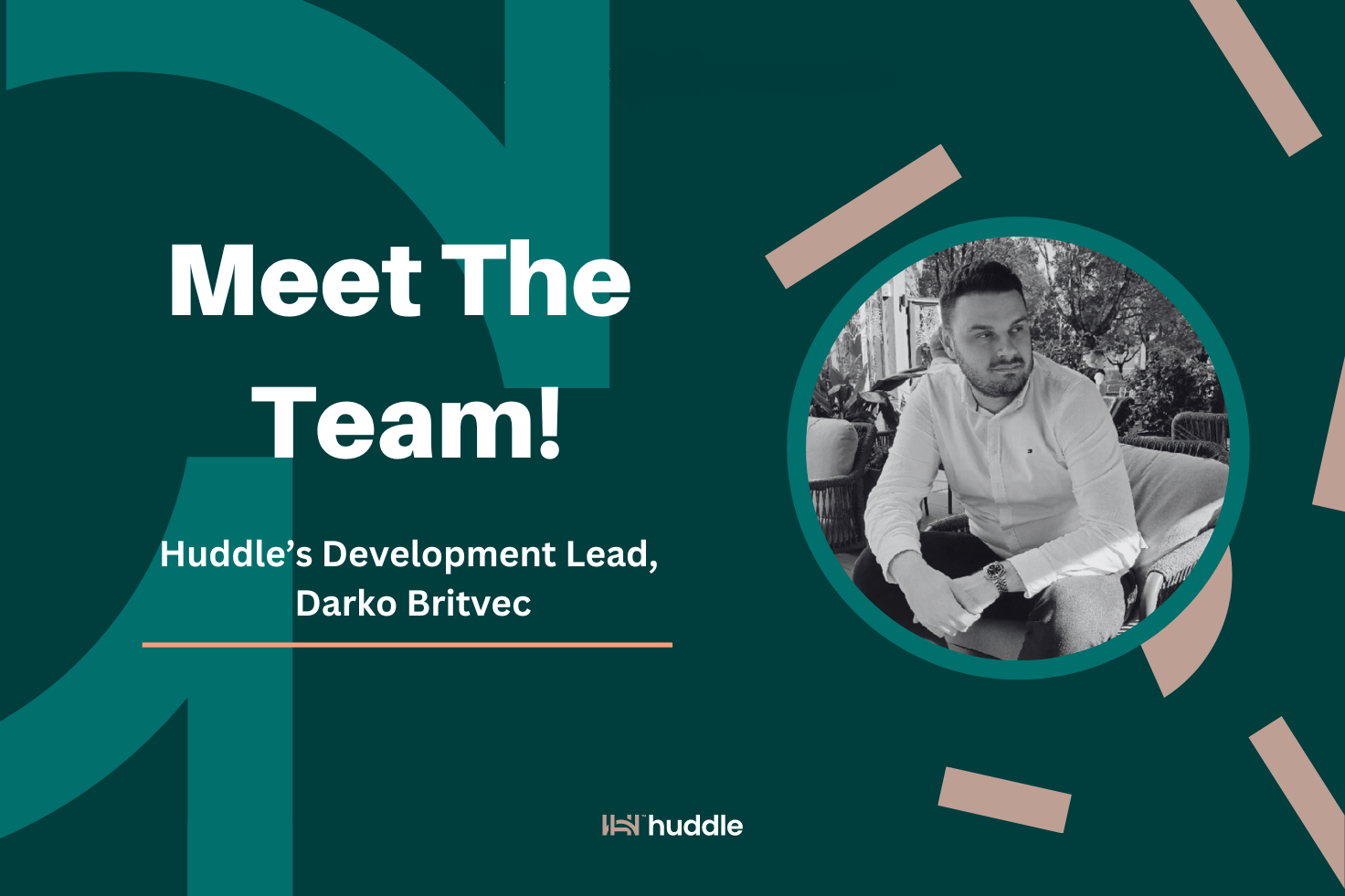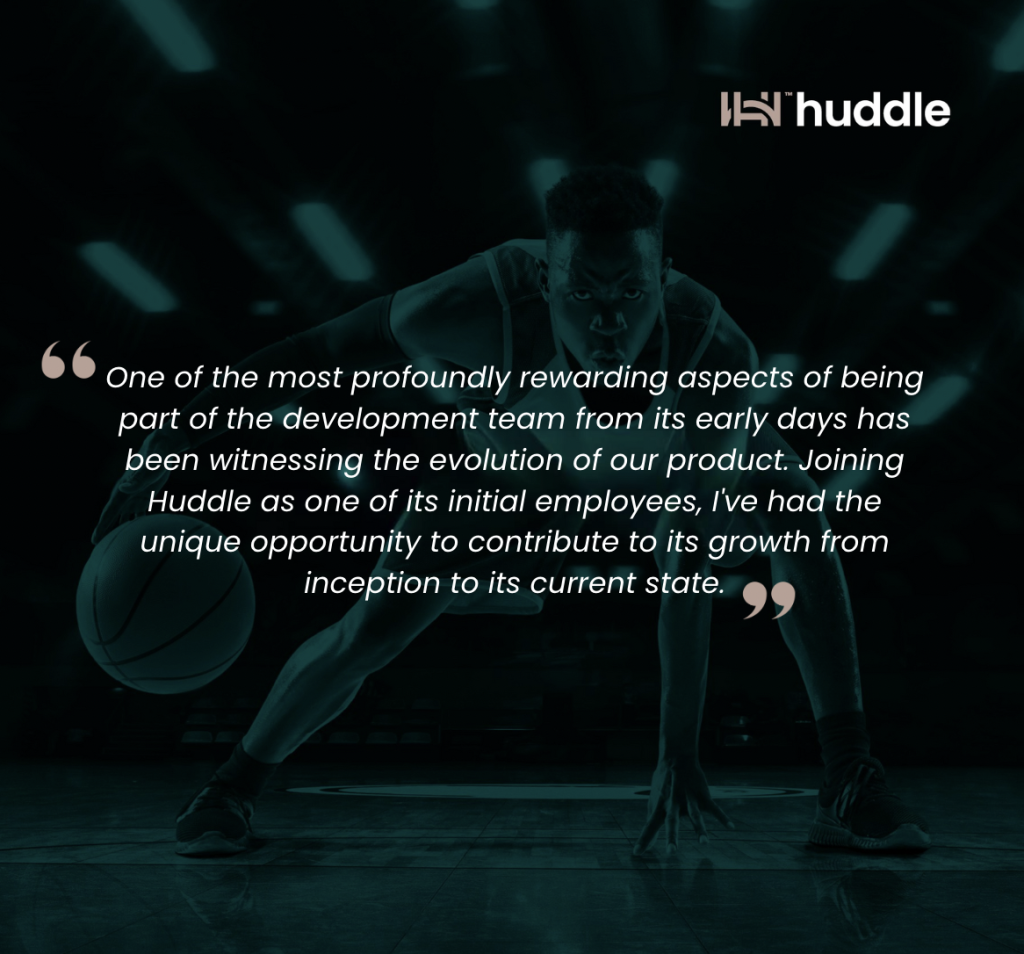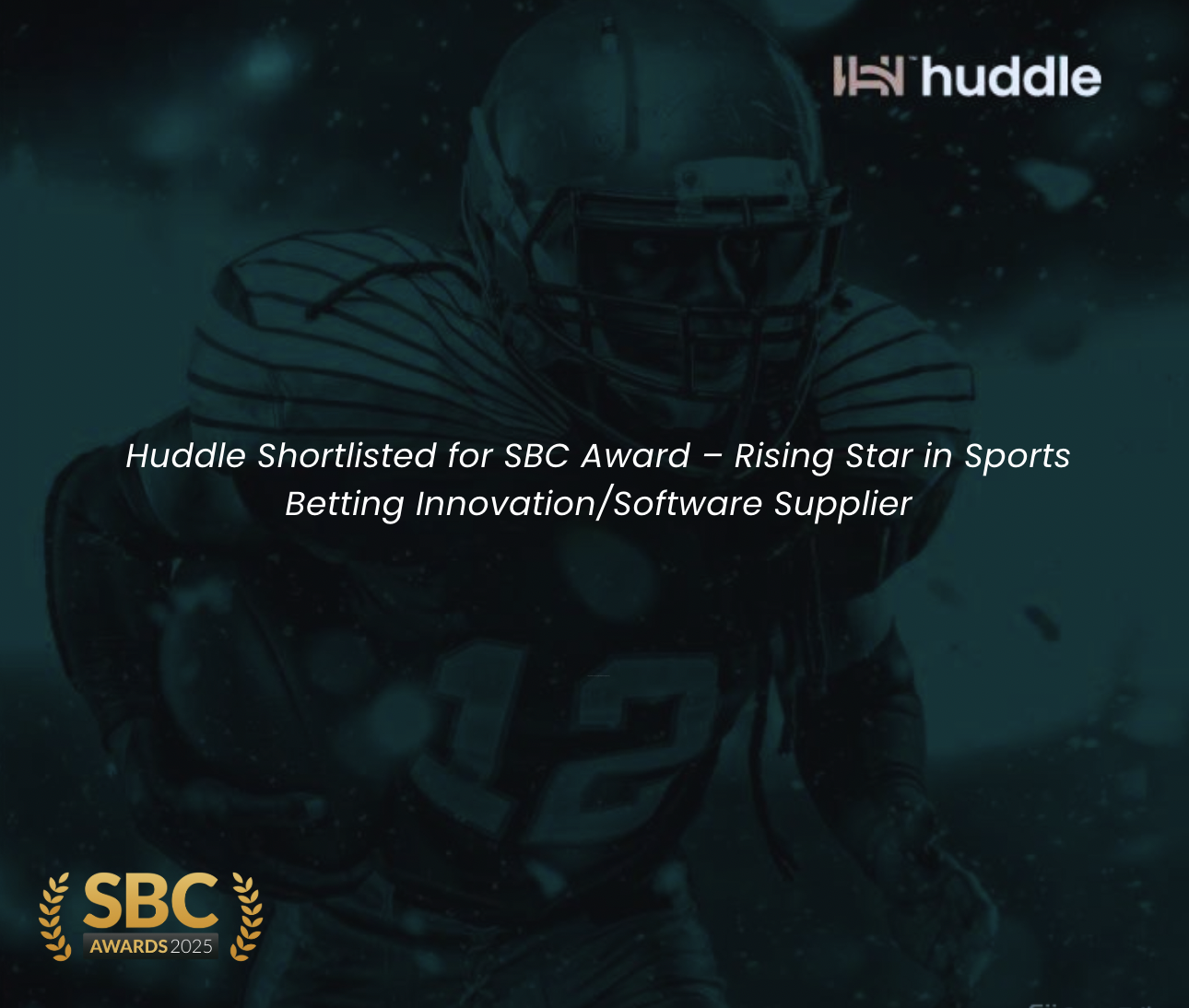
Meet The Team: Q&A Session with Huddle Development Lead, Darko Britvec
Blog
Meet The Team: Q&A Session with Huddle Development Lead, Darko Britvec
In the latest "Meet The Team" series, discover the inspiring journey of Darko Britvec, Huddle’s Backend Lead.
Darko's diverse experience across industries and technologies, from automotive to telecommunications and web development to data engineering, equipped him with a broad skill set. His tenure at Huddle began with a role as a backend engineer, where he quickly demonstrated his potential, eventually rising to lead the backend team.
At Huddle, he's played a key role in projects like the Identity Mapper and Same Game Parlay (SGP). His leadership and collaborative approach have been vital in advancing our innovative sports betting solutions.
Can you tell us a bit about your background and how you became interested in software development, specifically in the sports betting industry?
Programming wasn’t love at first sight for me. I always enjoyed math, physics, and problem-solving in high school, but I didn’t have a great informatics teacher. Explaining algorithms and data structures was challenging for them, and I disliked having to memorize things from the books instead of thinking through them. I often argued with the teacher, trying to show different ways to use the concepts. I even held small lessons during breaks to help my friends understand how and why things work. It's no surprise the teacher didn’t like me, and that’s mostly why I didn’t consider a career in software development.
Like most of my classmates, I went to the Faculty of Electrical Engineering and Computing at the University of Zagreb after high school. I aimed for a career in electrotechnics and electronics because I enjoyed the practical side of physics. But then I ended up in a class called Algorithms and Data Structures which was (at that point) held by one really young professor, Mario Brčić. He saw a big potential in me, the passion I have for programming and pushed me towards software development. We even stayed friends later on and would always catch up whenever we saw each other on college hallways. In the end we even crossed paths in our professional career here in Huddle as he became one of our external associates. He still helps us out with research and development, especially applying AI/ML algorithms in the sports betting domain.
During college, I explored various positions in different industries like automotive and telecommunications. I tried web development, mobile development, and data engineering, learning many programming languages, frameworks, and tools. This diverse experience was valuable when I applied to Huddle. Srđan, our VP of Engineering, hired me as a backend engineer, recognizing my potential despite my limited experience. I learned a lot from him, especially about the sports betting domain, which was new to me. In my whole life I only placed one bet (a losing one 😀) so I needed to learn everything from scratch.
As a Backend Lead, you are responsible for guiding the Backend team in complex decisions. Your role involves not only individual contributions but also mentoring and supporting the growth of new team members. How do you foster effective communication and collaboration within your team and also with cross-functional teams?
Prior to Huddle, I had some development leading experience but at a much smaller scale. After I joined the company as a backend engineer, I was working my way up the ladder and became a backend team lead. Srđan was a really good mentor and I learned a lot from him, especially how to manage people, make hard decisions and design software which can be delivered in a limited amount of time.
In the beginning, my team was small, but the decisions were tough from day one. We faced a tight schedule, and few resources to develop a complex system that needed to be fast, reliable, and robust. Now, my team has grown to almost 10 members, and I’m proud of our culture and work ethic. I always encourage communication and collaboration, ensuring the team makes decisions collectively. Every member has a voice and contributes their prior experience when developing new features.
I must say that most of our team members were hired as senior developers so I didn’t need to guide them that much from the beginning, but the sports betting domain is complex for both juniors and seniors. It takes time to remember the lingo and how everything translates to the actual code. I have a close relationship with other team leads. We work together on planning the next big things in HuddleOS and also try to bring our teams closer so everyone is involved in everything.
Can you share any recent technological advancements or initiatives at Huddle that you're particularly excited about?
In the last few months we’re trying out some new tools. One of the examples is RisingWave, a distributed SQL streaming database which we use to develop our Liability Monitoring. It enables us to develop a really simple logic (written in streaming SQL) which aggregates numbers (total count, volume, P/L) on top of a stream of bets. This tool replaces standard streaming frameworks like Apache Flink or Apache Spark which tend to have a really steep learning curve.
These advancements underscore our commitment to leveraging cutting-edge technologies to deliver robust and scalable solutions that meet the evolving needs of our users.

Can you share a memorable success story or project that you and your team have accomplished during your time at Huddle?
There have been many memorable success stories. One of the first was developing our Identity Mapper, a complex feature used to unify IDs across platforms. I designed and developed it from the ground up, and it remains a fundamental feature for external feed integration. This project was my "baby," and I’m proud of its lasting impact.
Second big success was making an automated pricing system powered by something we call a “param-finding” algorithm. That algorithm consumes industry markets ingested from external odds aggregators and tries to derive most optimal parameters which can be used by our simulation model to produce prices which are close to “industry consensus”. What sets this initiative apart is the collaborative effort it entailed across multiple teams—backend, data, and quantitative analysis. This cross-functional collaboration was essential in integrating diverse expertise to successfully implement a sophisticated solution that enhances our pricing accuracy and responsiveness.
Among many successes like developing SGP, Player Props, Micros, MTS, and more, my proudest personal achievement was organizing our first backend team building event. We grilled some meat, had some beer, told some jokes and had fun together. After all, developers are people too!
Without a doubt, one of the greatest accomplishments in Huddle was the development of Huddle’s Same Game Parlay Product. Can you discuss the collaborative efforts between the backend team, frontend team, devops team, data team, quant team, and product managers that were crucial in navigating the challenges of architecting Single Game Parlay (SGP) at Huddle?
Collaboration played a pivotal role in overcoming the challenges encountered while crafting the architecture for Single Game Parlay (SGP) at Huddle. The basic SGP idea was simple but it presented difficult challenges in terms of performance and high implementation cost.
SGP was one of the most technically challenging features we ever developed. It required thinking outside of the box; re-using prior knowledge and combining it with new technology and approaches. Meeting strict requirements like <100ms response time, high throughput, serving SGP for potentially hundreds of events in parallel, and doing all of that without sacrificing precision and combinability of selections wouldn’t be possible without a big collaborative effort between all engineering teams and product managers.
Recently we published a white-paper on the Architecture of Huddle's Same Game Parlay which you can read HERE!
As the sports betting landscape continues to evolve, SGP services remain a powerful tool for gaining a competitive edge in the industry.
Looking back on your career so far, what has been the most rewarding aspect of being a part of the development team at Huddle?
Reflecting on my journey with Huddle, one of the most profoundly rewarding aspects of being part of the development team from its early days has been witnessing the evolution of our product. Joining Huddle as one of its initial employees, I've had the unique opportunity to contribute to its growth from inception to its current state.
Watching how our product has matured and expanded its capabilities over time has been immensely gratifying. From the initial stages where we were crafting the foundational ideas and prototypes, to seeing those concepts come to life through rigorous development cycles and iterations, every milestone has been a testament to our team's dedication and innovation.















